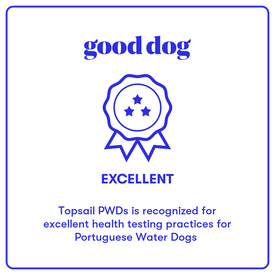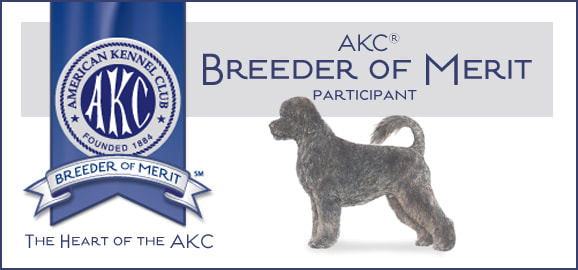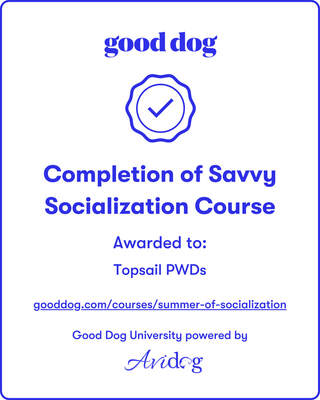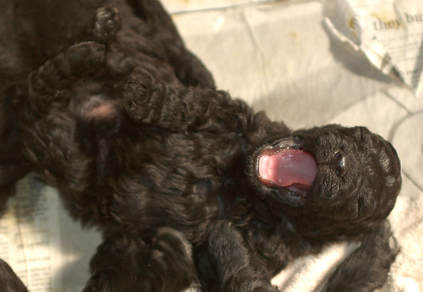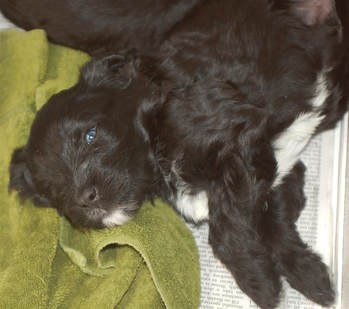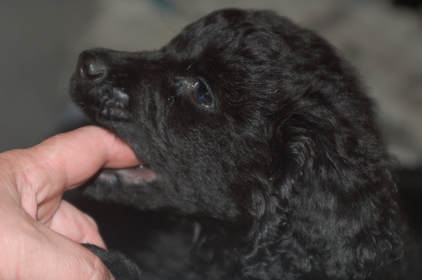Puppy Application - we only have girls available
|
Anyone considering taking a PWD into their home should sit down and thoroughly read this free issue of The Courier, the official magazine of the Portuguese Water Dog Club of America. It is chock full of information about these dogs, what to look for in a breeder, and how to train your pup.
If you would like to be considered for one of our puppies, please download the fillable PDF file (click on the button below), save it to your computer, fill it out in Adobe Reader, save it, and send it to us at [email protected]. WE DO NOT SHIP PUPPIES! You must physically pick up your puppy to take him or her home. NOTE: all applicants (inclusive of all family members) will be required to have an in-person interview at our home where they can meet our dogs and we can get to know one another. These interviews take about 1 hour. Also, when possible, we would like approved homes to start visiting the puppies starting around the 5th week of age to begin the socialization process with humans. So if we approve you to be one of our homes, plan to come visit as often as possible to interact with the puppies to help them become highly interactive with a variety of people of different ages. Please note: because PWD puppies are extremely active and mouthy, we do not place puppies in homes with children under the age of 6. We do not want your child to grow up afraid of dogs or hating your dog. Children should be of old enough to understand when puppies are overstimulated and need to be put up for a nap. UPFRONT INFORMATION - READ BEFORE YOU APPLY! If you get a puppy from us, there are several things we require and we're going to spell them out right off the bat -- these requirements may cause you to go elsewhere for a puppy and that's okay!
If you and your family can accept these conditions, then we'd love to see an application from you! If you don't like these conditions, please seek a puppy from someone else. |




